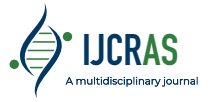| Title: ALZHEIMER’S DISEASE DETECTION UTILIZING PRETRAINED DEEP LEARNING MODELS ON STRUCTURAL MRI SCANS |
| Authors: Akshay Kumar Sagar and Dr. Ritu Shrivastava |
| Affiliation: 1. Computer Science Engineering Sagar Institute of Research and Technology Bhopal 2. Prof and Head Sagar Institute of Research and Technology Bhopal |
| Abstract: Diseases affecting the brain rank high on some of the most challenging conditions to treat because of their complexity, severity, and expense. In contrast, it is not essential for the procedure to be successful, as the outcomes of the operation may fail. Alzheimer’s disease, which primarily affects older persons, is one of the most prevalent forms of dementia and is associated with memory loss and forgetfulness. Depending on the individual’s health status. Because of this, brain CT scans can be used to evaluate a patient’s level of Alzheimer’s disease and classify his or her memory loss. Neuroimaging data, including MRI scans, have been studied extensively in recent years as a potential diagnostic tool for Alzheimer’s disease. Recent years have seen significant computer-based research advancements in the field of DL. Recent days have seen significant progress in the application of deep learning algorithms to the study of medical imaging. We propose a deep convolutional network and show its effectiveness on the Alzheimer’s Disease (AD) Dataset we downloaded from Kaggle to accomplish this goal. The best parameters for Alzheimer’s disease prediction have been calculated using ResNet 50 and the Xception model. This study aims to categorise AD photos into four categories recognised by neurologists, and the findings will be evaluated using several criteria. In this study, computer methods, namely DCNN and transfer learning, were utilised to categorise AD. ResNet 50 performed best in two of the seven criteria used for the evaluation: accuracy and AUC score. The results of this study conclusively demonstrate that AD may be classified by computer algorithms into four categories recognised by medical professionals. The proposed method produces superior results, with a best-in-class training accuracy of 94.51% and validation accuracy of 86.66% for AD. In comparison to similar works, this the score of accuracy is substantially higher. |
| Keywords: Alzheimer’s disease, Deep learning, ResNet 50, Early-stage detection and diagnosis |
| DOI: https://doi.org/10.61646/IJCRAS.vol.3.issue5.92 |
| Date of Publication: 19-09-2024 |
| PDF Download |
| Download Certificate |
| Published Volume and Issue: Volume 3 Issue 5 Sep-Oct 2024 |
International Journal of Current Research and Applied Studies
An open access multidisciplinary journal, ISSN 2583-6781
